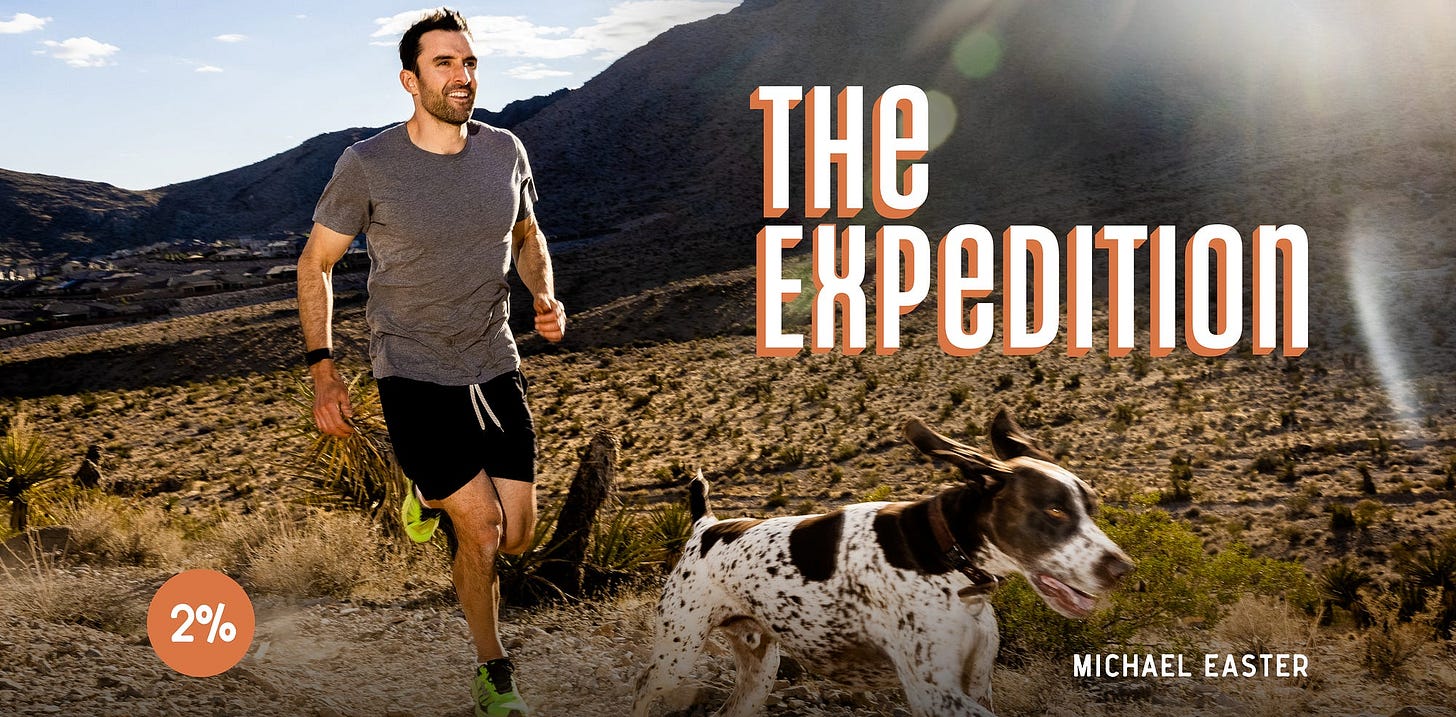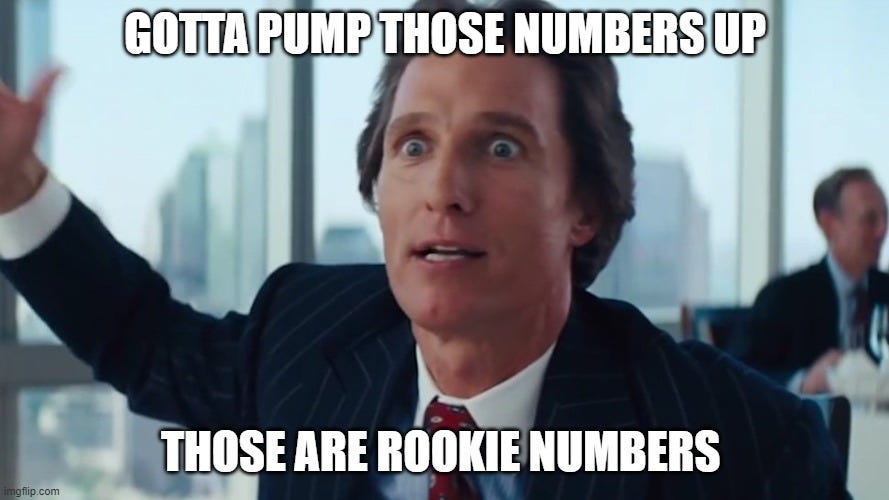The Expedition: November Edition
The most useful stuff I’ve discovered exploring the world and the internet this month.
We’ll cover: A great book I read, how salt impacts health, plant-based diets, cardio vs. weights, three ways to be a better trail runner, and more …
Notes:
I’m in Jacksonville at GORUCK HQ today. If you’re in the area, come hang out and carry some heavy stuff this evening. Details.
The full version of this post is for Members, who are people who like to have fun and not die.
If you’d like to access all 2% premium content and have fun and not die, please consider becoming a Member below.
Onto today’s post: The Expedition
This monthly series is a journey into thoughts, opinions, ideas, observations, studies, facts, figures, etc. Good ones, bad ones, insightful ones, dumb ones, and ones you can use to live better.
It’s a roundup of all the worthwhile stuff I’ve encountered in the last month. It’s a bit of an island of misfit toys. But, hey, the greatest journeys are winding. We’re covering:
A terrifying book I read.
Numbers on supplements that don’t work, the impact of salt on heart disease risk, freak fitness acts, plant-based diets and performance, and Thanksgiving dinner.
Graphs that answer two questions: Is strength or cardio better? And which athletes have the lowest resting heart rates?
Three science-backed ways to be a better trail runner.
Two covert operations that impact what you see and eat.
An important question about Thanksgiving.
Enjoy …
Books I read: The Chaos Machine
Max Fisher is one of the best investigative journalists in the game. He’s spent a career reporting on Silicon Valley. Particularly social media.
If you read my book Scarcity Brain, you understand that social media companies (and tons of other industries like the food and gambling industries) hook us by leaning into the scarcity loop. It’s a three-part behavior loop that is the serial killer of moderation. More on the scarcity loop here.
We all know social media has downsides. But Fisher’s book goes deeply into just how low the downsides of social media go—specifically what sort of content rises on social media and how that impacts you, me, and the neighborhoods, cities, countries, and world in which we all live.
I particularly enjoyed how Fisher explained how the history and culture of Silicon Valley—the personalities of the key players—have inadvertently shaped our lives today.
The book reinforced why the 2% project is so important to me. It’s positive. We have no algorithms upvoting outrage. We’re all here to learn, better ourselves, and spend less time in the chaos machine.
By the Numbers:
0
Improvements in sustained attention, mood, or hand steadiness people experienced after drinking a popular energy drink. I.e., the energy drink didn’t do what it claimed.
75
Percent of people experienced a drop in blood pressure nearly equal to taking one blood pressure lowering medication after they restricted their salt intake by one teaspoon per day. Twenty-five percent of people saw no benefit.
The takeaway: Consider eating less salt if you are hypertensive (48 percent of American adults are hypertensive).
691,095
Deaths that hypertension caused or contributed to in America in 2021. ☠
8
Days it took for the Spanish ultra-running fitness freak Killian Jornet to run to the summit of all 177 peaks higher than 9,000 feet in the Pyrenees. He also commuted from peak to peak on a bicycle.
0
Difference in strength and power of athletes who ate a plant-based diet compared to those who ate animal-based foods. The review debunks the myth that plant-based diets hinder strength and power. The plant-based eaters also demonstrated better aerobic performance and had lower BMIs (my guess is that this is because plant-based eaters likely do more cardio, not that plants are better for endurance).
147
Average speed in miles an hour F1 racers will drive down the The Strip during this weekend’s F1 Grand Prix in my hometown of Las Vegas. They’ll reach a max speed of 212.
The famous new Las Vegas Sphere has agreed not to blast colors that will be distracting to drivers as they zoom by.
3,000 to 4,500
Calories the average American will consume during Thanksgiving dinner.
My reaction:
Two good graphs
What’s better, strength or cardio?
Keep reading with a 7-day free trial
Subscribe to Two Percent with Michael Easter to keep reading this post and get 7 days of free access to the full post archives.




